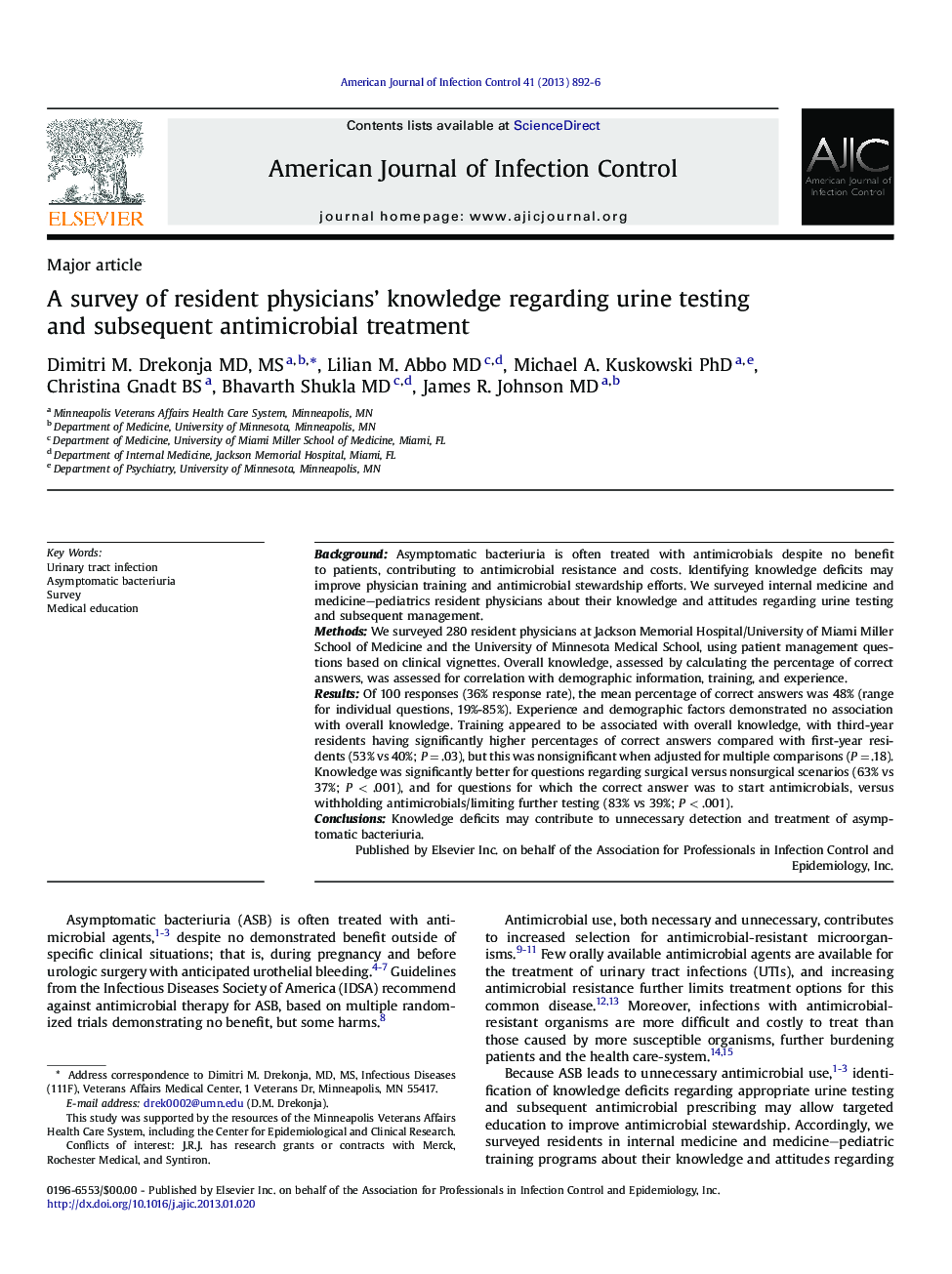| Article ID | Journal | Published Year | Pages | File Type |
|---|---|---|---|---|
| 2637171 | American Journal of Infection Control | 2013 | 5 Pages |
BackgroundAsymptomatic bacteriuria is often treated with antimicrobials despite no benefit to patients, contributing to antimicrobial resistance and costs. Identifying knowledge deficits may improve physician training and antimicrobial stewardship efforts. We surveyed internal medicine and medicine–pediatrics resident physicians about their knowledge and attitudes regarding urine testing and subsequent management.MethodsWe surveyed 280 resident physicians at Jackson Memorial Hospital/University of Miami Miller School of Medicine and the University of Minnesota Medical School, using patient management questions based on clinical vignettes. Overall knowledge, assessed by calculating the percentage of correct answers, was assessed for correlation with demographic information, training, and experience.ResultsOf 100 responses (36% response rate), the mean percentage of correct answers was 48% (range for individual questions, 19%-85%). Experience and demographic factors demonstrated no association with overall knowledge. Training appeared to be associated with overall knowledge, with third-year residents having significantly higher percentages of correct answers compared with first-year residents (53% vs 40%; P = .03), but this was nonsignificant when adjusted for multiple comparisons (P = .18). Knowledge was significantly better for questions regarding surgical versus nonsurgical scenarios (63% vs 37%; P < .001), and for questions for which the correct answer was to start antimicrobials, versus withholding antimicrobials/limiting further testing (83% vs 39%; P < .001).ConclusionsKnowledge deficits may contribute to unnecessary detection and treatment of asymptomatic bacteriuria.
